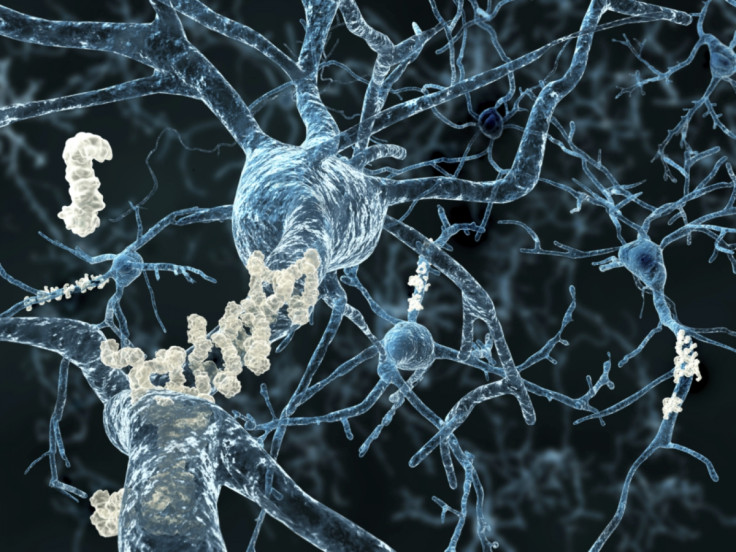Alzheimer's disease: Why is it so hard to find a treatment?
Progress occurs daily but there is a long way to go before we find the 'miracle cure' against Alzheimer's.

Read any article about Alzheimer's and you'll think the next cure for this devastating disease is right around the corner. But for patients and their families, the stark reality is that it's been more than a decade since memantine, the last molecule against Alzheimer's, was approved in Europe and the US.
Since then, there has been a number of trials for different drugs, but none have been successful. The drugs that do exist are not intended to cure Alzheimer's sufferers – they are only able to attenuate the symptoms and slow down the disease's progression.
The world's population is quickly ageing, with the number of people 60 or over expected to reach nearly 2 billion in 2050. Alzheimer's disease is intrinsically associated with ageing, with as much 10% of those in this age-group suffering from it. In these conditions, it is believed a large proportion of the global population will be affected by mid-century.
There is therefore an urgency to find appropriate treatments for the disease, or at the very least, drugs that can more significantly delay its onset.
Alzheimer's in all its complexity
A simple reason for why treatments are so hard to develop is that the disease is particularly complex and its causes are still not very well understood.
"With hundred billion synapses protected by the skull, the brain is a very complex organ, the most complex in the body. We still do not have great ways to measure what is going on in there, unlike other disease such as diabetes, where you can get a good idea of what you are dealing with thanks to simple blood tests," Dr James Pickett, Head of Research at Alzheimer's Society told IBTimes UK. "If you cannot study what is going on, it is complicated to understand the causes of Alzheimer's".

Alzheimer's is thought to occur when the brain starts shrinking, affecting its structure and the function of key areas – with genetic and environmental factors both playing a part. However, it is not certain what causes this process to begin. In the brains of patients, abnormal deposits of proteins known as amyloid plaques and tau tangles are shown to accumulate and an acetylcholine chemical imbalance has been identified, but their exact role in triggering the disease remains unclear.
Alzheimer's is very heterogeneous condition, affecting different people in different ways. This may also explain why the path toward treatment is so arduous – people diagnosed with the same disease may respond very differently to treatments. "Alzheimer's disease may actually be a number of different but related conditions, so probably one of the reasons trials are failing is that drugs are tested in groups of people with slightly different conditions. If this is the case, it is not 100% surprising that results are negative," Pickett explains.
Another problem is that, because of their age, Alzheimer's patients often have comorbidities – this constitutes an obstacle to recruit clinical trial participants, as it is much easier to study people who only have one condition.

Understanding and treating Alzheimer's will necessarily involve a reflection regarding the different ways in which the disease manifests itself, and its link with ageing. "How separate the condition really is from ageing is a controversy that exists in the field. Is Alzheimer's truly a distinct disease, or is it ageing gone wrong? Are some types of Alzheimer's due to ageing and some not? There is not a single, uniform way to talk about this disease, no one way to classify it and perhaps no drug that can fix it all, which makes it hard to come up with quick fix-solutions. We are making progress, but we are not yet where we would like to be," Dr. Russell Swerdlow, director of the University of Kansas Alzheimer's Disease Center, told IBTimes UK.
On the trail of new treatments
Solving all these interrogations will likely take some time, especially because the field still gets comparatively less funding than that of other diseases. While there has been recent improvements – such as in the UK, where £250m has been committed to fund a landmark Dementia Research Institute – dementia research received about eight times less money than cancer's in 2013.
Despite these challenges, the latest Alzheimer's Association International Congress showed that research is progressively becoming more innovative and diversified. Uncertainty about the disease's causes means that scientists are not sure they are hitting the right target with the drugs they are developing and testing and about 40% of the molecules currently on trials still target the amyloid processing pathways. However, research teams have recently been coming up with new proposals and investigating drugs which target completely different biological processes.
This is the case of Dr Swerdlow's team. "In my view there must be something upstream of amyloid plaques and tau tangles that is driving the problem, and I would target this. I think the problem lies in changes in brain energy metabolism and mitochondria, which have been speculated to drive brain ageing. My personal opinion is that we will cure Alzheimer's when we cure brain ageing," Swerdlow says.

With his colleagues, he studies how energy metabolism changes in other tissues of the body - such as muscles. When people exercise, more mitochondria are created in their muscles, and the team wants to figure out what exactly mediates these changes, so as to create a drug that confers similar effects to the brain.
In the coming months, results of other trials are also expected, sparking a wave of cautious optimism among experts. A three-years study about Solanezumab – a drug that has shown a few positive results in a small number of patients with mild Alzheimer's – will reveal whether the drug is safe and effective in people over 65, with a very mild form of the disease.
In fact, working on patients with less severe forms of the disease or mild cognitive impairment seems to be trending in the field. This way, scientists hope to focus more on prevention – tackling the disease before it develops into a full-blown condition, rather than treating people with advanced Alzheimer's. Studies looking at whether lifestyle interventions have an impact on preventing Alzheimer's are popular, such as the FINGER study in Finland.
A milestone is not a breakthrough
Despite difficulties to understand the disease, people have become more aware of it in recent years. The burden it might pose on economies, and the fact people are worried about getting it, creates an environment where we all want new treatments to be created quickly.

This can lead us to rejoicing too quickly when an advance is made in the field. "For drugs to be developed, they have to go through a couple of milestones. We need to identify what we want our drug to target, find out if it works, if it is safe and effective, and if it works in the same way that you think it does. The problem is that each of these milestones often gets presented as a breakthrough by the media. While these are of course important steps for the development of the drug, it does not mean they will get approved in the end," says Pickett.
According to him, this, and the fact more funding is progressively being allocated to Alzheimer's research means there is pressure to show that progress is being made. While trials are often presented as success stories in the media, and while more is being done every day to combat the disease, the fact is there is still a long way to go.
© Copyright IBTimes 2025. All rights reserved.






















